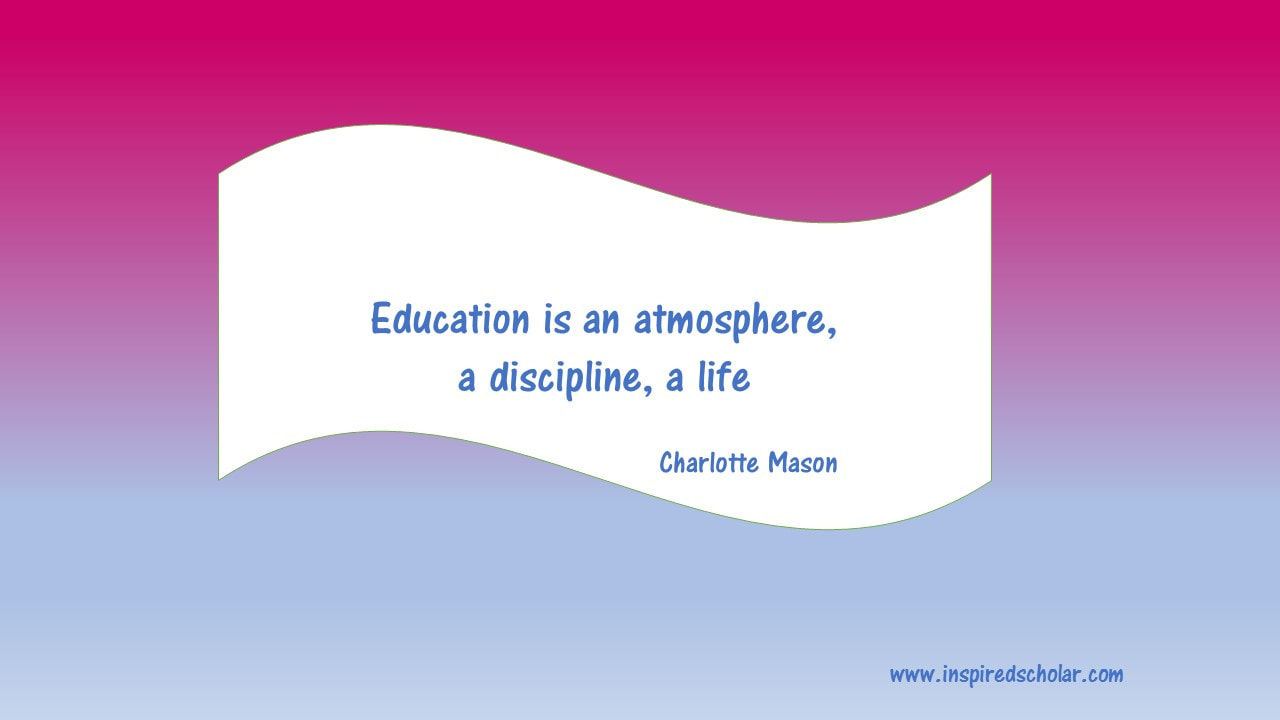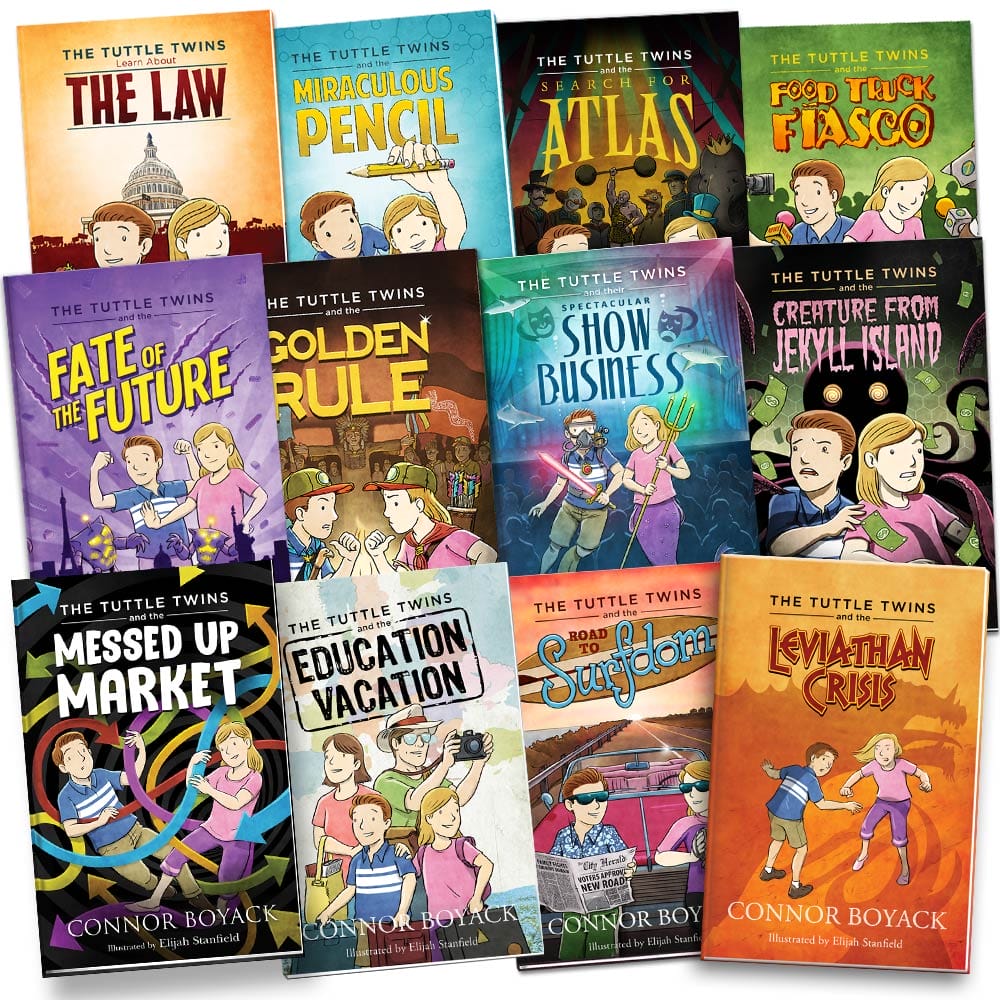 Inspiring learners is what we do best at The Inspired Scholar. We know that inspired students learn. Children start out in life on fire for learning. They ask questions and absorb everything in their environment. It is our aim to keep that fire lit. What does it mean to be inspired? The 1828 American Dictionary of the English Language declares : informed or directed by the Holy Spirit The Merriam-Webster online explains: the action or power of moving the emotions. A Christian cannot do better than to begin by praying and asking for wisdom in regard to his child’s inner workings. After all, God made him or her. A little insight will go a long ways. But everyone experiences a lack of motivation at times, so we offer you five ways to keep your children inspired in the work of learning. 1. Use their interests Who doesn't like to spend more time on what they are interested in? In a tutoring situation, when I am faced with a student who really dislikes writing, I often start by having him or her make a list of 10 or 12 of their interests. I encourage choices and let them write on one of their interests. Instantly, writing becomes that much easier and less of a burden. This applies to other subjects, too. When studying science or history, for example, allow a choice of topics or eras as much as possible. Allow some choice in in how they will demonstrate their learning. Written tests are only one of many assessment tools. Choice is key in inspiring learners. 2. Field Trips Children needs lot of input for their brain and getting outdoors and taking trips to new places is an important vehicle for learning about the world, an impetus for conversation , and necessary for developing observations and opinions about the world. Field trips can be with a group or homeschool co-op, but I also consider family outings, field trips. A field trip need not be far away or expensive. Start with your own hometown. Most people do not really know their own area as much as they might think. While living in Arizona, it never ceased to amaze me the number of people who had never visited the Grand Canyon, one of the Seven Natural Wonders of the World! Seek out places to go as if you were a tourist. While visiting our family we learned of a couple of historic estates with art museums and gardens. Additionally, we visited some lighthouses for the very first time and they always have some fascinating history! 3. Take a break Yes, a break can be motivating, because we all need to "do nothing" sometimes to renew our minds and bodies. This is especially true if you are constantly busy. Kids and adults need down time, too. Take, as needed. Taking a break might not mean "doing nothing" but instead, doing things differently, in a different order or with different people or a new routine. 4. A different teacher Each teacher has something unique to offer. No matter how expert a homeschool parent may be at teaching a particular subject, a new perspective from an "outsider" can infuse a student with new enthusiasm in their learning journey. Other teachers have their own experiences to share with students and a different way to approach their subject. 5. Choices Choice gives a person a feeling of control over their lives. It is something everyone appreciates. It is also an important part of the adult world, so children need opportunities to make good choices. As much as possible (and age-appropriate) allow your child to make their schedule. They will learn through trial and error what is a realistic schedule and what is not achievable (at least for them at this time). Some are naturally early birds and others perk up later in the day. That should be taken into account when planning the day. Young people could also choose the days of the week and months of the year that they will study. Perhaps they can help choose the curriculum or subjects. We all like choices and children will be more cooperative when their input is included. Many educational approaches exist today and this is nowhere more true than in homeschooling circles. One of the most enduring is an approach advocated by Charlotte Mason. Because she addresses the whole child and not just academics, I favor her methods and ideas. This summer I will explore one of Miss Mason's twenty basic principles to help infuse your parenting and homeschooling with power and purpose.
Charlotte Mason was an educator in the 19th century who understood children and held a high regard for them as intelligent persons that needed guidance, training, and an education that used the best educational "food." She wrote a six-volume series of books called the Home Education Series. In these books, she explores these principles in depth. However, because she lived in the 19th century, her Victorian language can be difficult for some, and although the books are worth the time to read, frankly, many parents just cannot spare it. With that in mind, Leslie Noelani Laurio wrote an excellent sentence-by-sentence translation in modern English. She also has a paragraph- by-paragraph condensed version. Mason's ideas and principles are not a curriculum but a way of approaching the instruction of children. Some other books that distill her ideas can be found here: A Charlotte Mason Companaion: Personal Reflections on the Gentle Art of Learning by Karen Andreola A Charlotte Mason Education: A Homeschooling How-To Manual and More A Charlotte Mason Education, both by Catherine Levison Now, let's take the fast track to learning her foundational principles here this summer by reading this synopsis. What an inspirational summer study for homeschool parents to reflect on and gear up for a new school year! "Greater love hath no man than this, that a man lay down his life for his friends (John 15:13). This verse is in the same chapter where the first 10 verses speaks of abiding in Christ. Unless we have invited Jesus to be our Savior, we cannot abide in Him and we are not his friends. We cannot have the relationship and abide with Him unless we first recognize that we are sinners and are willing to repent and turn away from it. "From that time Jesus began to preach and to say repent, for the kingdom of heaven is at hand" (Matthew 4:17). Next, we place our faith in Him and confess Him as our Lord and Savior. "That if thou shalt confess with thy mouth the Lord Jesus, and shalt believe in thine heart that God hath raised him from the dead, thou shalt be saved. For with the heart man believeth unto righteousness; and with the mouth confession is made unto salvation" (Romans 10: 9-10). If you have done those things, you have something to celebrate this Easter. You have a present Help and a future hope.
In spite of the many disturbing trends in government schooling today, parents and grandparents can supply missing content in childrens’ education. No matter whether your children attend public, private, or Christian school, even the best of schools cannot teach everything. Rather than engage in useless complaining, why not get involved to rectify the situation? Where to start? Let me introduce you to the Tuttle twins. They are fictitious characters in a series of books on economics and law for 5-11 year-old children written by Connor Boyack and illustrated by Elijah Stanfield. Each of the twelve books in the series clearly and cleverly teaches a lesson on history, money, law, or political philosophy in a way that youngsters can understand. Many are based on famous essays or novels. For example, in The Tuttle Twins and the Search for Atlas, which is based on Atlas Shrugged by Ayn Rand, readers learn the results of socialism. What happens when the innovators abandon their enterprises? The Tuttle Twins and the Creature from Jekyll Island, explains what the Federal Reserve is, when it was created, and how it works. Do you know? You might want to read this along with your children. It was created the same year that the income tax was instituted in 1913. One of my favorites is The Tuttle Twins and the Miraculous Pencil, which is based on an essay by Leonard Reed entitled, “I, Pencil.” How is it possible that no one knows how to make a pencil from start to finish and yet pencils are a common, everyday object? What about The Tuttle Twins and the Golden Rule? It is heartbreaking how many children have never heard of the Golden Rule, the principle of which is taken right from the Bible. If we would just follow it, many of our problems would be solved.
Why not establish a once-a-month Saturday club where you invite your children’s friends to join you? Read the book aloud because even though they can read the book themselves, it facilitates greater discussion and provides an opportunity for children to ask questions. To aid in that, the book provides a short glossary and discussion questions in the back. The twelve books divide perfectly into presenting one book a month. Also provided is a downloadable workbook for each book. For a limited time, they are offering 35% off the set. (https:www.tuttletwins.com/ref/Renee/) The books are also available on audio and in other languages. In addition to the twelve set of books for 5-11 year-olds, there is a set of four books for high schoolers and there is even a set of books for toddlers! No one is left out. The Tuttle Toddlers: The ABCs of Liberty anyone? E is for Entrepreneur; L is for Loyalists. We all know how much little ones can understand, especially when presented at their level. For those who want to dive deeper, they also have a ten-unit Free Market Rules Economic Curriculum that includes a parent teaching guide. You can also subscribe to their monthly magazine for kids to learn about current events. It comes with a swag welcome box with stickers, buttons, and magnets. The subscription is available in print and online along with weekly writing prompts. If you purchase the books through my affiliate link, I will receive a small portion and you will not pay anything additional. My main reason for writing this review is not monetary, but to help you discover stellar resources to teach your children what is not being taught. I chose to be an affiliate because I was so impressed with what they have to offer. Sadly, parents and grandparents are left out of the conversation when it comes to government schooling, but that just means that they should take a more active part in the next generation. If you are concerned about your children being taught falsehoods about our nation’s history and that government is the solution to their problems, then you will want to get these books. Here's a great read on what science is and what it is not. What an important basic concept to understand!
https://fee.org/articles/why-the-bastardization-of-the-scientific-method-is-so-dangerous/?utm_source=email&utm_medium=email&utm_campaign=2020_FEEDaily After the educational debacle in 2020 resulting from closing schools and sending everyone home, I thought it was high time that I responded with some sense. I have heard the unfounded criticism that online learning is a poor substitute for in-person learning and yet, that has been almost entirely based on the experience of public school children and teachers who were thrust into an unfamiliar learning situation overnight. That was an unfair burden put upon teachers and it did indeed negatively impact the children. Learning online has its advantages and its drawbacks. One thing it is not, however, is merely in-person learning transferred online.
Consider that most of the children had never “gone to school” online and did not know how to download the appropriate software and set up their computer for audio and video. This is assuming they have a computer with reliable internet service. Many of the children have parents who work full-time, so they did not have any adult supervision to oversee that their children were setup and actually in their seat ready to learn. Without rules and some order in this new online environment, children felt free to get up and get a snack whenever they felt like it, play with their pets, or even watch tv or play a video game during the instructional time! Teachers did not have any training to prepare themselves for teaching in this new format, so their lessons were not digital-ready. They spent most of their time trying to help children with the software and audio challenges and trying to engage their attention in the midst of a variety of distractions. In many schools, the hours of instructional time were greatly reduced and students were left to do homework on their own without much direction. On top of that, many parents believed that they were “homeschooling” because their children were having to login to meet their teacher online. Nothing could be further from the truth of what real homeschooling is like. This was an educational disaster. It was not what quality online education looks like. Online education, also called “distance education” has many advantages when teachers and students are prepared for it. Many online classes are live, which means that they have a specific meeting time (just like in-person classes) and they have video capabilities where students and teachers can see and hear each other. The only difference is that everyone is in a different place. I have found in my teaching experience which encompasses both in-person and online, that children are far less distracted online and I have been able to accomplish more with them than when they are surrounded by little talkers, people coming and going in the classroom, or outright misbehavior. In an online environment, we are able to use a whiteboard, and notes and in-class work can be emailed directly to students. Videos can be shown and students can give presentations. Unlike an in-person class, online lessons can be recorded, which is great for review or for those who are absent. There is little that cannot be done in an online environment. Another advantage of online learning is that courses can also be offered “on demand” which means that students can work through lessons on their own schedule and at their own pace. Hands-on projects are more challenging to do online, but it is still possible. Even group work can be done online in “breakout rooms.” Convenience is another important advantage in online learning. With the gas prices escalating overnight, staying home saves money. It also saves time in traveling to and from in-person school. Before I finish, I know there are some who are wondering about “socialization.” The implicit assumption is that the socialization that is going on at school is all positive. It surely is not. Bullying continues. Illegal drugs are ever more accessible. Now the LGBTQ agenda has been welcomed regardless of what you, the parent, feels about it. In public schools they have miniscule amounts of time to socialize. Most of the time they are told to be quiet. They have a short amount of time at recess and at lunch, but other than that, they don’t socialize in school as much as adults think. Socialization is a rather large topic and beyond the scope of my topic here. The truth is that children do not need the amount of socialization with same-age peers that adults often think they need. Parents who are concerned about their children not socializing can make opportunities for their children by joining clubs and parent/child play-date groups or homeschool groups. These groups are great for making friends and going on field trips. Church youth groups are another place where children can learn and interact. There is no reason for children to feel isolated. It only takes a parent with a bit of initiative to make it happen. I am biased and I freely admit it. But I am also honest. I have taught in both environments (in-person and online) and I know the advantages and disadvantages of both. I know that online learning is not for everyone, yet others thrive in an online environment. I have always promoted options. My objection is the blanket criticism of online instruction simply because the public schools bombed at it during the Covid shutdowns. The Inspired Scholar offers live online instruction as well as on-demand courses and one-on-one tutoring both online and in-person. We also offer in-person writing workshops (Journalism Camp) and dance classes. Yes, that’s right. Dance is a little hard to do well online. If you are interested in learning more, visit www.inspiredscholar.com. Our new class offerings for the 2022-2023 year will be posted in March. I am not a lover of insects. Some of them I can admire, but mostly I avoid them as much as possible. It matters not whether they are venomous or harmless. I am eternally thankful that a large six-inch preying mantis fell next to me on a chair at the laundromat and NOT in my hair. I don't think I would be living to tell this tale. How, then, did I end up engrossed by a book on moths? I even count this among some of my favorite non-fiction. It all goes back to reading A Girl of the Limberlost by Gene Stratton-Porter. In it, Elnora earns money to pay for her textbooks by collecting moths for a scientist. Through that fictitious world, I developed an interest in learning more about them. It turns out that Stratton-Porter was truly interested in moths and wrote a whole book about them, "Moths of the Limberlost." She made me see the exquisite beauty of moths. Reading, goes far beyond making us literate, but can take us down other paths and open doors into another world that we might not peer into otherwise.
Are you looking for a high school literature course for this fall? Check out my year long class on World Literature & Composition. Starts Aug. 26, 2021 - Thursdays 1:30-2:30 p.m. EST.
I like to give my students an opportunity to be creative in demonstrating what they have learned. It is not necessary for them to always write essays. Open-ended projects such as these online interactive posters teach them to think and plan as well as to show what they have gleaned. The first is a study of The House of Seven Gables by Nathaniel Hawthorne. The second is on "Evangeline" by Henry Wadsworth Longfellow.
 Don't make the mistake of discontinuing to read to your readers. Once your children are independent readers, your job isn't done. You can still read books that are just beyond your child's reading or comprehension ability and explain things along the way. Reading-aloud even to your teens builds family relationships and gives everyone something in common to talk about. It builds vocabulary effortlessly, which translates into students who have an easier time of writing. It's just plain worth the time to do it. Some of our best homeschool memories were the shared books we read-aloud. For older children, 12 years old and up, I recommend the series of books by James Herriot, who was a veterinarian in Yorkshire, England in the 20th century. The first one is All Creatures Great and Small. In them, he relates his experiences, many of which are hilarious in his dealings with animals, his boss, his boss' brother, farmers, and other people. They are a bit graphic at times (he was a vet of large animals after all), and that is why it would be better to wait until your children are older before you read these aloud. There is also a series of books for children, which I don't think are quite as good as his original books that these stories are culled from. If they are young, just wait on this one. |
Renee MetcalfWhere will you find me when I am not teaching? For your reading pleasure!
August 2023
Topics
All
|





 RSS Feed
RSS Feed
